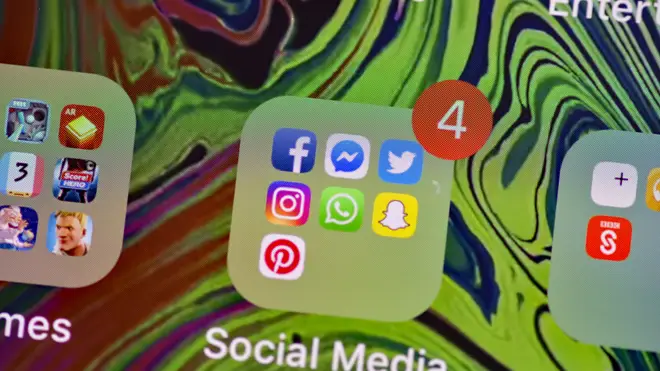
Nick Abbot 10pm - 1am
16 April 2021, 14:44

Lord Bethell said the Government backs proposals to bring certain procedures in line with other body modification techniques.
Social media giants have come under fire as a ban on Botox and cosmetic fillers for children moved closer to becoming law.
Health minister Lord Bethell revealed he “worries daily” over the impact of social media on his two daughters, and called on big tech to do “all they can” to better protect children from harmful content.
He added the Government backs proposals to bring certain cosmetic procedures in line with other body modification techniques.
The Botulinum Toxin and Cosmetic Fillers (Children) Bill seeks to prohibit the procedures for under-18s in England if they are for purely aesthetic purposes and not approved by a doctor.
Lord Bethell told peers: “The provisions in this Bill will ensure that young people are accorded the highest protections to safeguard their physical and psychological health.
“There are already statutory age restrictions in place for tattooing, teeth whitening and for sunbed use – it makes no sense that there are not similar protections for invasive injectable cosmetic procedures.
“Botulinum toxin, dermal fillers, laser hair removal account for nine out of 10 non-surgical treatments performed in the UK, an absolutely astonishing proportion.
“Analysis by my department last year estimated there may have been as many as 41,000 botulinum toxin procedures carried out for under-18s in 2020, and over 29,300 dermal filler procedures for under-18s may have been undertaken in 2017.”
The minister acknowledged these are “very personal issues”, noting: “I have two daughters of my own and I worry daily about the world that they live and their consumption of social media.
“But I should be clear to noble Lords who have raised these points that the Bill before us has a tight focus, and social media is not the target of this Bill.
“I do join Baroness Mobarik in calling for big tech to do all they can in this area.
“The online safety bill will be ready this year and this legislation will help ensure children can make the most of the benefits of going online while staying as safe as possible.”
Conservative Lady Mobarik earlier said she hopes the Botox ban will act as a “warning shot” to social media platforms – such as Facebook, Instagram and Twitter – and encourage them to do more to protect children.
She said: “While much good has come from the near-universal access to the internet that we’re privileged to have in this country, we cannot ignore the fact that the social media giants have presided over a grave situation by which the youth of today are constantly bombarded by images, videos and filters which present an unrealistic aesthetic ideal.
“It is no wonder so many children are feeling the need for cosmetic alterations and I call on big tech to do what is morally right and protect our children from the unrealistic ideals that have been forced upon them.”
Conservative Baroness Meyer added: “It is normal for teenagers to worry about their appearance. The pressure put on them by social media has meant we have an increasing normalisation of cosmetic interventions amongst the young.”
Baroness Wyld, the Conservative peer sponsoring the Bill in the Lords, said: “It’s easy as adults to forget when one comes to terms with our own physical imperfections the great pain that one feels as a young person or a child of being different in any way.
“And I’m glad we can do a little bit today to help.”
Both Labour and the Liberal Democrats offered their backing to the Bill and it received an unopposed second reading. It is expected to undergo further scrutiny later this month.